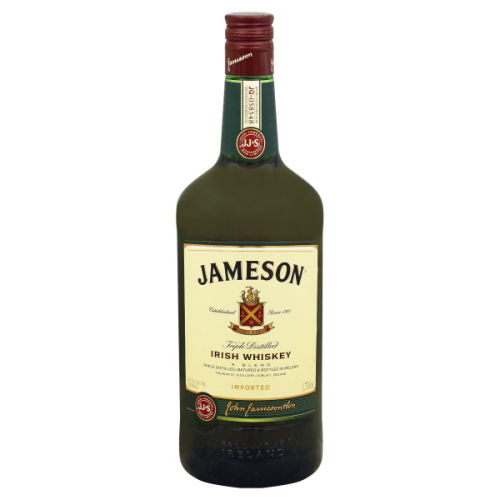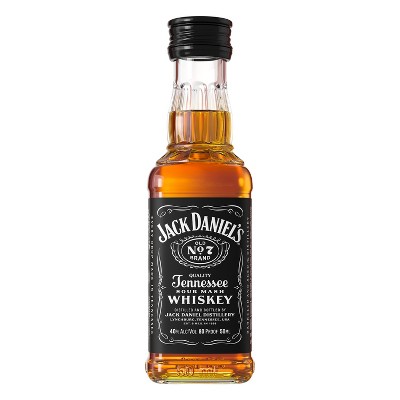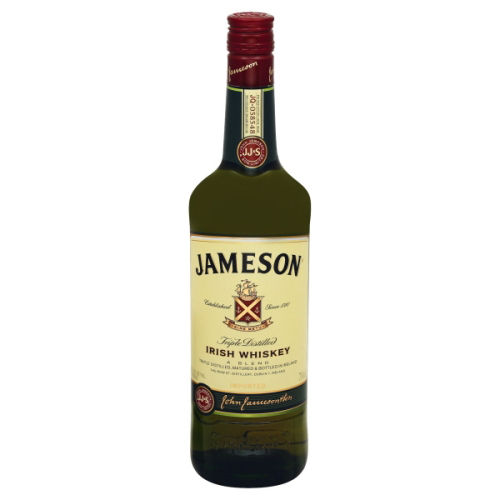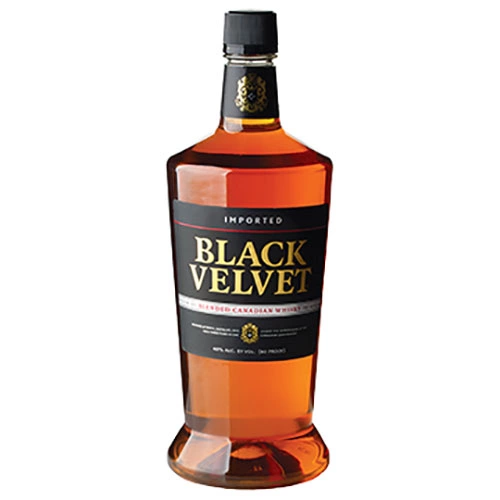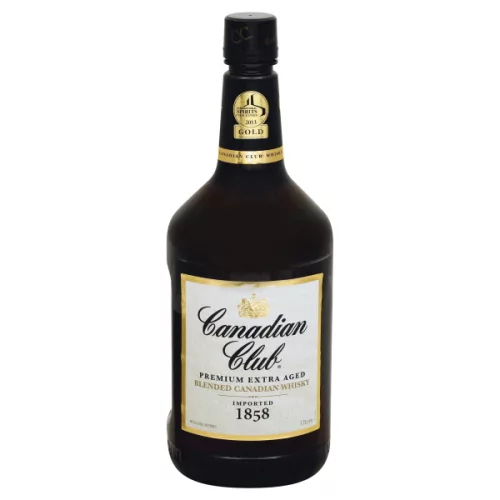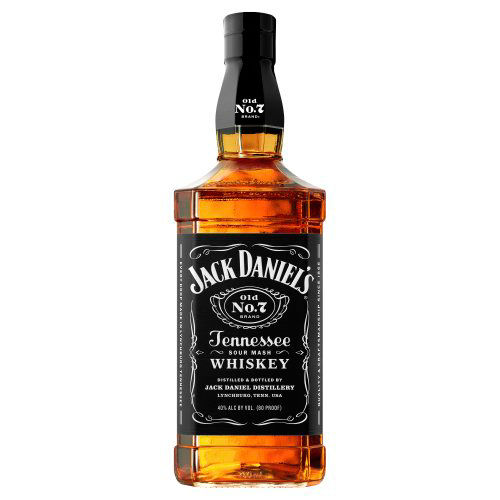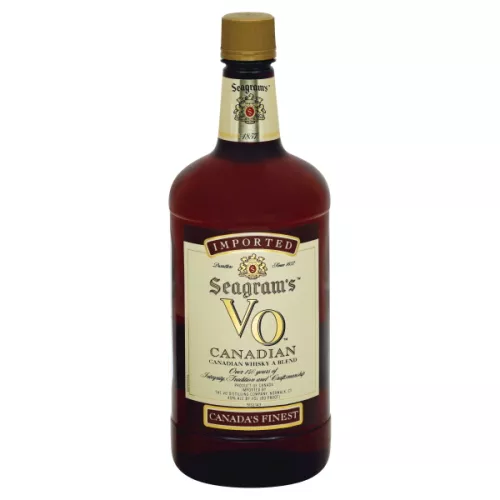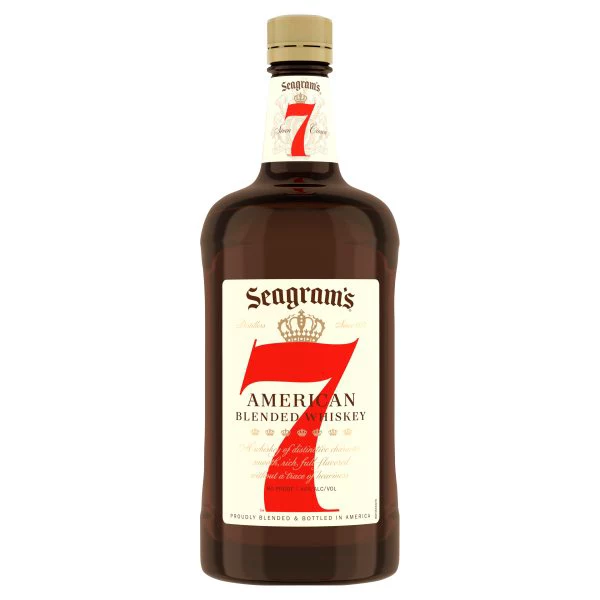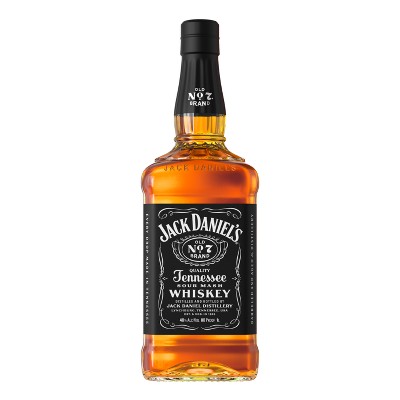COCKTAILS
Whiskey
Whiskey is a distilled alcoholic beverage made from fermented grains, typically corn, rye, wheat, or barley, and aged in wooden barrels. Originating from Ireland and Scotland, this ancient spirit has a rich history that can be traced back to the early medieval period. Today, whiskey is appreciated by various cultures around the world, each with their own distinct production methods and flavor profiles.
For home cooks and consumers, whiskey offers a complex taste that can be enjoyed neat, with water, or in cocktails. Additionally, its depth of flavor can enhance the taste of various dishes, from savory meat-centric recipes to sweet and indulgent desserts.
100%
CARBS
0%
FAT
0%
PROTEIN
2,155 Whiskey Products
Jameson Original Irish Whiskey, 1.75 L Bottle, 40% ABV
Jack Daniel's Old No. 7 Tennessee Whiskey
Jameson Triple Distilled Irish Whiskey
Jack Daniel's Old No. 7 Tennessee Whiskey
Black Velvet Canadian Whisky, 1.75 L Plastic Bottle, 80 Proof
Canadian Club Whisky, Blended Canadian
Jack Daniel's Old No. 7 Tennessee Whiskey
Seagram's VO Canadian Whisky
Seagram's 7 Whiskey
Jack Daniel's Old No. 7 Tennessee Whiskey, 1 L Bottle, 80 Proof
Used In 19 Recipes
5
Sun-Kissed Tomato Basil Soup with Whiskey Cheddar Melts
3
Sizzling Sirloin Steaks with Peppercorn Whisky Sauce and Crispy Gruyere Potatoes
4
Cheesy Whiskey Bacon Burgers
2
Boneless Pork Chops in Creamy Irish Whiskey Sauce
6
Whiskey Honey Pulled Pork
94
Snowflake Pull-Apart Monkey Bread
3
Eggplant Bourguignon
Super Simple Whiskey Peach Cobbler
Whiskey Is Frequently Used With
Whiskey FAQ
Whiskey is prized for its depth of flavour, making it ideal not just for drinking but also as a versatile ingredient in cooking. When cooking with whiskey, the key is accentuating the spirit's flavours without overpowering the dish, which is a common mistake many people make. Finding the perfect balance is crucial. Also, another mistake is adding whiskey to a hot pan, resulting in an undesirable flame and alcohol burn. Warm the whiskey gently to allow it to co-mingle properly with other dish flavors.
On the other hand, whiskey can significantly enhance the taste of marinades, sauces, gravies, stews, and desserts. Whiskey infused desserts like Whiskey Brownies or Whiskey-infused French Toast can bring unique flavours to your regular bakes. Not known to many, but if you are out of vanilla extract, a dash of whiskey can be a great substitute due to its caramelly and oaky taste profile.
Can I use any type of whiskey for cooking?
How much whiskey should I use in my cooking?
Can I flambé with whiskey?
Will all the alcohol burn off when cooking with whiskey?
Can I use whiskey in marinades?
Can I substitute whiskey for other alcohols in a recipe?
Can I use whiskey in baking?
Does the quality of the whiskey matter when cooking?
What dishes go well with whiskey?
Can I use whiskey instead of vanilla extract?
Expiration & Storage Tips
When does whiskey expire?
Whiskey, unlike some spirits, will not improve or evolve further once it's been bottled. However, it is also a product that does not typically expire even when opened. That being said, for the best taste experience, it's advised to consume your whiskey within 1 to 2 years of opening the bottle. If it's unopened, a good quality whiskey can practically last forever with the potential to last for decades. Please note that for a homemade whiskey or moonshine, since there's no quality control, shelf life may be less predictable. Freezing whiskey is generally not recommended as it can affect its nuanced flavors.
How do you tell if whiskey is bad?
Although whiskey does not 'expire' in the typical sense, there are still signs to look for that suggest it may not be at its best. Firstly, you might notice that the aroma of the whiskey seems dull and flat. Its color might appear pale, cloudy, or cobweb-like filaments may be present inside the bottle due to excessive oxidation from exposure to air for a prolonged period. The most conclusive method, though, is to taste the whiskey. If it's lost its distinct flavors and becomes bland and unenjoyable, this suggests that your whiskey has 'gone bad'.
Tips for storing whiskey to extend shelf life
• Keep your whiskey in a cool, dark place to avoid rapid temperature fluctuations. A kitchen cabinet away from the stove or a pantry is usually a good choice.
• Store the bottle upright. The high alcohol content of whiskey can degrade the cork, which can then taint the spirit.
• Keep the bottle tightly sealed to prevent air from entering the bottle and oxidizing the whiskey.
• If the whiskey bottle is more than half empty, consider transferring it to a smaller bottle to limit the spirit's air exposure. There are specialized spirit storage bottles available for this purpose, but any clean, sealable glass bottle will work.
• Never freeze your whiskey. It doesn't need refrigeration to stay good and freezing it can dull its nuanced flavors.
EXPIRES WITHIN
27 - 27.4
YEARS
Equivalents
Substitutes
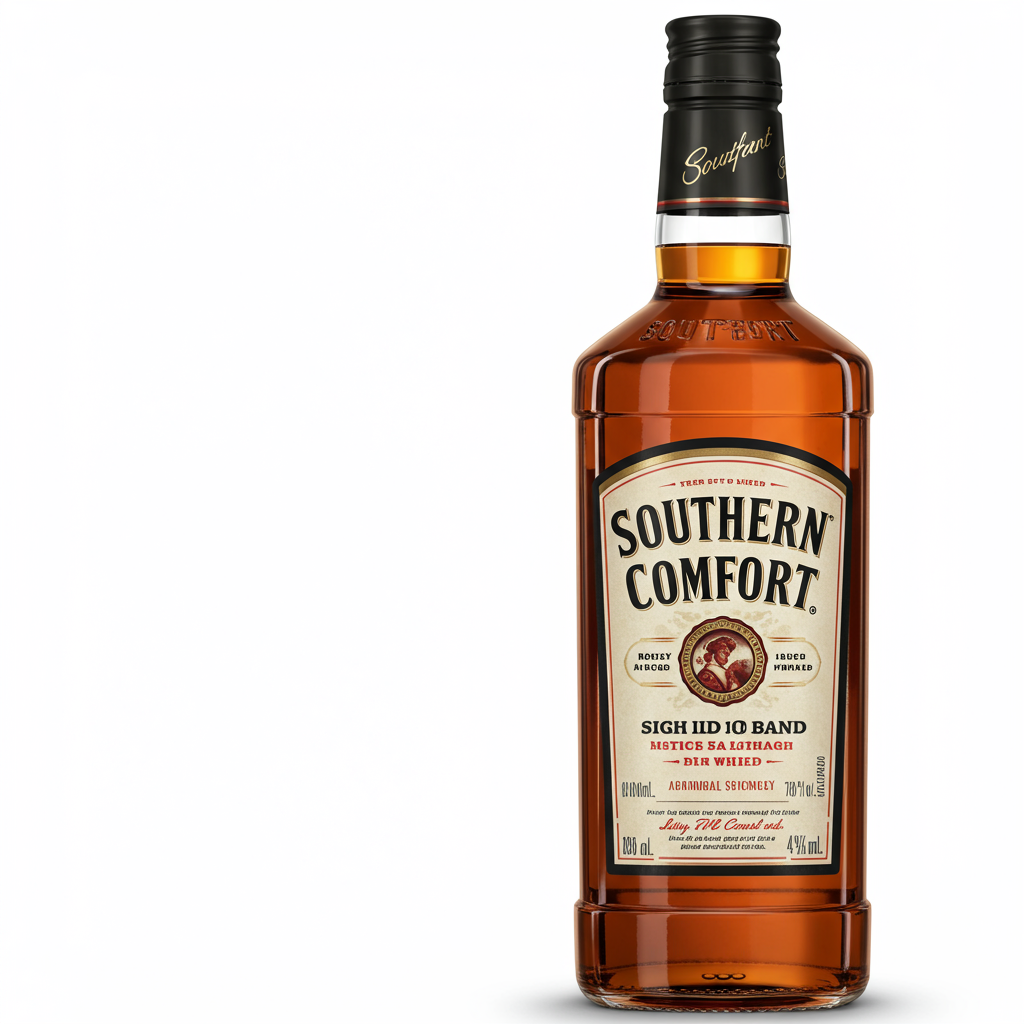
Whiskey Liqueur

Calvados

Cognac

White Whiskey

Apple Whiskey

Berry Whiskey

Caramel Whiskey

Cherry Whiskey

Chocolate Whiskey

Cinnamon Whiskey
See All
Health Info
Macros
0g
CARBS
0g
FAT
0g
PROTEIN
Allowed on these diets
LOW FAT
HIGH CALCIUM
VEGETARIAN
KETO
LOW CARB
VEGAN
LACTOSE FREE
GLUTEN FREE

